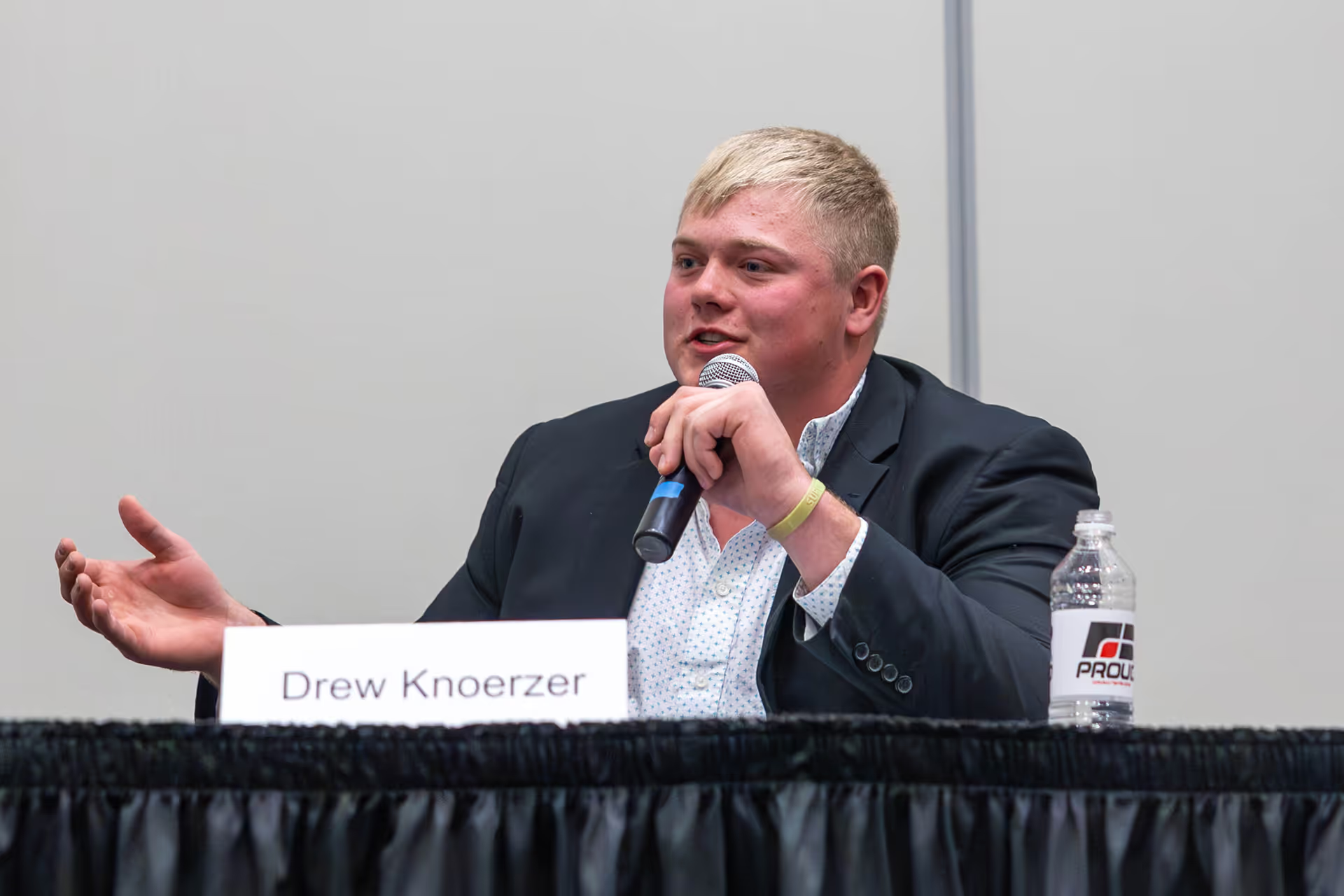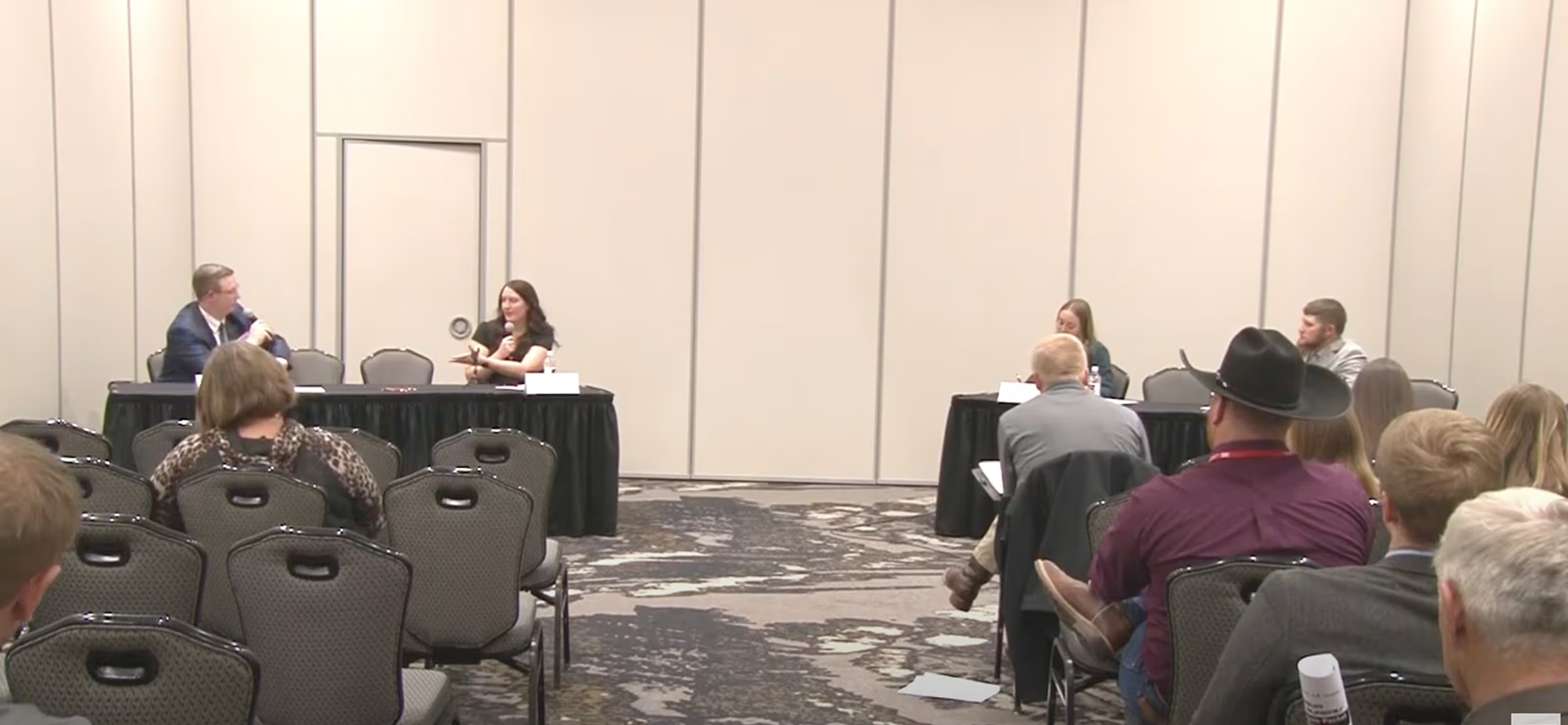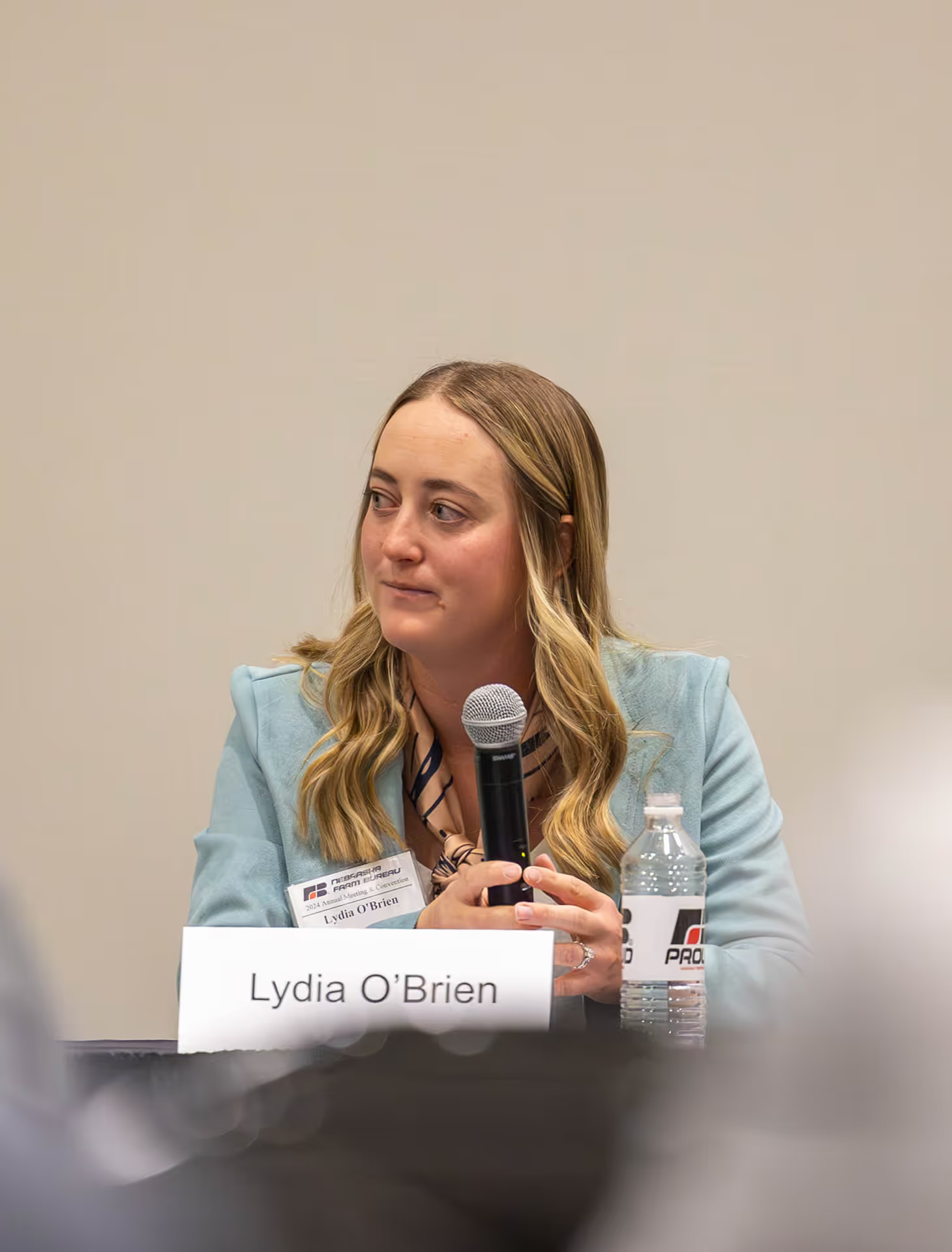Discussion Meet
You might not have all the answers, but discussing current agriculture issues with other young farmers and ranchers could find the solution! Surface new ideas and have the chance to earn prizes through casual conversation- a win win!

What is Discussion Meet?
Discussion Meet competitive event simulates a committee meeting where discussion and active participation are expected from each participant. This competition is evaluated on an exchange of ideas and information on a pre-determined topic. Participants build basic discussion skills, develop a keen understanding of important agricultural issues, and explore how groups can pool knowledge to reach consensus and solve problems.
Who is Eligible
Young Farmers and Ranchers ages 18-35 are eligible to participate in the Discussion Meet contest. Once someone has won the state contest, they are no longer eligible to compete.
*Determines who will represent Nebraska at the 2026 AFBF YF&R Discussion Meet | Collegiate Discussion Meet

Who is Eligible
College students who are a part of our Collegiate Farm Bureau program at UNL, CSC, NCTA, of NECC are welcome to participate in Collegiate Discussion Meet! Once an individual has won the state contest they are no longer eligible to compete in the contest. If a contestant wins in the YF&R division they also are no longer eligible to compete in the collegiate division.

Competition Format
A room chair will call the meeting to order, announce the topic to be discussed, and introduce the timekeeper and moderator. The moderator will introduce the competitors.
In voluntary order, competitors will give a 30-second opening statement directed to the audience.
The moderator will indicate to the competitors that they may begin open discussion, which will continue for 20-25 minutes (depending on the round).
The timekeeper will indicate when there are five minutes remaining and when time has elapsed.
The moderator will call for one minute of quiet time where competitors may compose a closing statement.
In voluntary order, the competitors will make a one-minute closing statement directed to the audience.


Helpful Hints for Competitors
Come prepared! Study the topic prior to discussion.
Remember this is a discussion, not a debate.
Be prepared to ask questions, state facts and opinions, and urge others to be specific.
Be aware of the audience, but generally address the panel. Speak loudly enough for panelists and the audience to hear you.
Participate whenever your contribution will further the discussion. Do not monopolize the discussion.
The discussion should not merely be conversation, nor should you take the role of a persuasive speaker. Try to cooperatively shed light on the problem and tentatively retain a flexible position.
Make notes of key points as the discussion proceeds for use in you closing statement and use the one minute of quiet time at the end to organize your closing statement.
Discussion Meet Questions
These questions will be used from April 2025-March 2026.
Urban sprawl presents significant challenges for farmers and ranchers, impacting access to land and resources. We see that 1.9 million acres of agricultural land are lost to development each year. How can Farm Bureau help promote responsible growth in communities while mitigating the loss of farms, ranches, and the agrarian way of life?
Technology has made the world more interconnected than ever, creating new avenues for communication with policymakers. How can digital engagement be leveraged to effectively connect Farm Bureau members with their local, state, and national elected and appointed officials?
There are numerous resources available to support seamless farm and ranch succession planning. How can Farm Bureau help increase understanding, access and utilization of tools and resources that help facilitate the smooth transition of land and capital from one generation to the next?
Farmers and ranchers are at the forefront of environmental stewardship. From soil health to local ecosystems, producers are concerned about how to be both environmentally and financially sustainable. How can farmers and ranchers effectively advance environmental stewardship while balancing the needs of their farms?
Farm Bureau offers a diverse range of member benefits at the state and national levels. What strategies can be implemented to ensure members are fully informed about the savings on products and services available to them? Additionally, how can young farmers and ranchers leverage these industry relationships to strengthen local partnerships and increase utilization of these discounts to keep their operations running smoothly?


